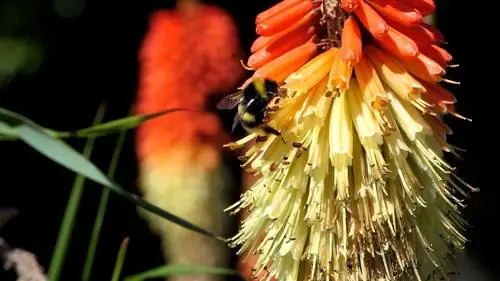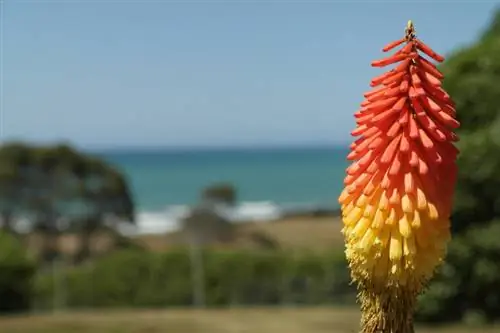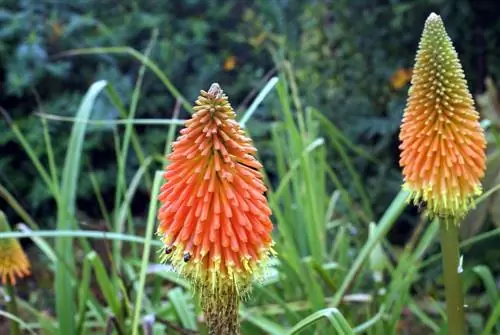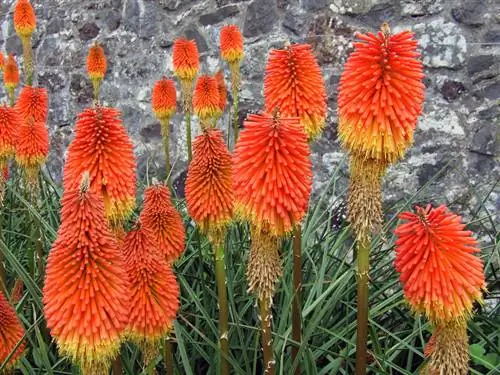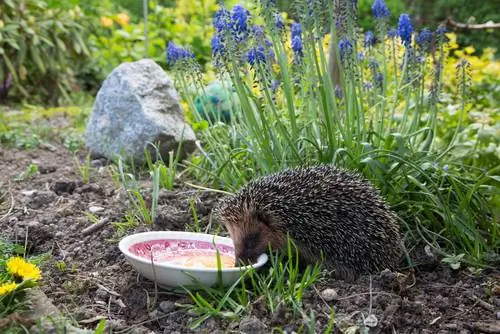- Author admin leonars@hobbygardeners.com.
- Public 2023-12-16 16:46.
- Last modified 2025-01-23 11:22.
The Kniphofia, known as the torch lily, is not only a real delight for the eye with its beautiful inflorescences. It is also bee friendly and provides for beneficial insects. This is what you should know about the perennial.
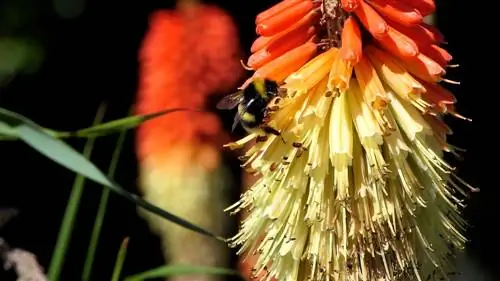
Why are torch lilies good for bees?
The torch lily, also known as Kniphofia, is particularly useful for bees because it blooms in late summer, providing an important source of energy for bees when other flowers are scarce. It mainly attracts bees and butterflies and is not poisonous to humans or pets.
Why are torch lilies so useful for bees?
With itsflowering period, the torch lily guarantees aenergy supply in late summer and thus ensures that the bees get through the winter well. While the meadows are full of flowers in spring, this is not the case in late summer. In many places bees search for nectar in vain. The animals then go into the winter weakened and may not survive it. If you plant torch lilies or similar summer bloomers, you can do something about the shortage of bees at exactly the right time.
Which insects does the torch lily feed?
Especiallybutterfliesand manybee species are attracted to the torch lily. The flower, known by the botanical name Kniphofia, raises its flowers on long stems. This means that the colorful inflorescences quickly stand out. Butterflies that feed on the plant for nectar bring a natural magic to your garden. So it's not just nature that benefits when you plant the easy-care and bee-friendly torch lily.
What does torch lily pollen offer bees?
Pollencontain proteinand are especially important for thesupply of baby bees. Bees also pollinate countless plants by collecting pollen and nectar. Bees are essential for the successful harvest of many fruit and vegetable plants. In fact, the small insect is one of the most important farm animals in the world. Planting bee-friendly perennials like the torch lily in one location in your garden will also ensure a good yield of global food production.
Tip
Carefree garden planting
No, the torch lily is not poisonous to humans, pets, bees or other beneficial insects. Even if small children live in your household and play in the garden, you can plant this perennial without worry.

